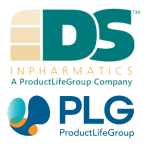Chemistry, manufacturing, and control (CMC) information strengthens the link between the quality of a drug candidate used in clinical trials and the end product advertised to consumers. It essentially outlines the critical quality attributes for drug products throughout their entire life cycle, from clinical development to commercial-scale production.

Image Credit: DSI, a PLG Company
CMC reviews, like current good manufacturing practices (cGMP, or GMP), are subject to regulatory requirements set by the US Food and Drug Administration (FDA). However, while the goals of these two pharmaceutical control strategies are similar, their approaches and regulations are very different.
CMC vs GMP: What is the Difference?
The eventual aim of both CMC and GMP is to make sure that drug products consistently meet strict, pre-determined quality requirements. They ensure the security and effectiveness of pharmaceutical products by illustrating their potency and ensuring compliance with applicable regulations.
However, where GMP and CMC differ the most is in their scope. While CMC information is product-specific, GMP is a top-notch framework that encompasses the entire operation of a manufacturer. Thus, while CMC practices and GMP have some similarities, they are not the same.
What is CMC?
CMC refers to a set of activities that ensure the quality of any new drug product. Several critical elements must be in place to ensure that both manufacturing practices and product specifications are described with ultimate batch-to-batch uniformity and security in mind. It results from the recognition of lead compounds and the pre-use confirmation of raw material quality.
Manufacturers must define critical quality attributes (CQA) and, as a result, the crucial process parameters (CPP) that underpin desired quality. This meticulous attention to detail must continue through every stage of the drug pipeline, such as properly labeling the product.
What is GMP?
GMP, on the other hand, refers to a set of reasonable quality assurances that underpin not only product development but also maintaining records, maintenance of equipment, verification procedures, and so on.
Traceability is an essential component of GMP compliance. The idea is that problems with product batches should be linked directly to a cause within the unit operation, which aids in the identification of other affected batches.
CMC and GMP, on the other hand, are not so dissimilar that they can be easily separated into the quality of product versus quality management. The two have an intersecting and often complementary relationship.
How to Synchronize CMC & GMP
Given the product-oriented nature of CMC reviews, a one-size-fits-all approach to synchronizing a CMC strategy with GMP is implausible. However, developing a solid insight into the product and where it is in the pipeline, and a feasible knowledge of the financial position, are critical components of this proposal.
Outsourcing vital CMC and GMP services is frequently a cost-effective and dependable way to accelerate and optimize your drug life cycle.
CMC consulting services, also known as CMC regulatory consulting, offer valuable assistance with regulatory planning and product development. CMC services are phase-appropriate due to the end-to-end nature of CMC information, providing valuable solutions like direct FDA-liaising and fast-tracked designations.
At Design Space InPharmatics, researchers offer cutting-edge CMC regulatory solutions as well as GMP system implementation. For more information, customers can contact a member of the team right away.
About DS InPharmatics 
DS InPharmatics (DSI) provides regulatory, technical, and project management consulting services to healthcare product companies that manufacture and/or market pharmaceuticals, biopharmaceuticals, and cellular and gene therapy products.
Since 2007 we have provided our clients with innovative strategies and exceptional quality work products intended to enhance product development, approval, and marketing presence. Whether advocating CMC strategy, directing CMC operations or developing CMC submission content that represent the best interests of emerging biotech, we focus on the critical CMC issues and build programs that enhance development.
In April 2021 we were thrilled to announce that DSI has just become part of ProductLife Group.
French-headquartered ProductLife Group (PLG) is well-known in the Life Sciences market. It has a track record of successfully managing global outsourcing programs and insourcing services for its international client base. The company is on a mission to help transform human health outcomes by optimizing regulatory affairs, safety & vigilance, and quality compliance for life sciences organizations worldwide.
The fit between our two organizations could not be more perfect. We will complement PLG's growing biotech services portfolio. US biotech sponsors recognize DSI as a leader in consulting for go-to-market strategies and RA pre-market consulting. At the same time, PLG has a strong reputation for managing end-to-end outsourcing of regulatory affairs and pharmacovigilance activities worldwide.
Our merger with PLG will harness our combined strengths, offering our clients on both sides of the Atlantic support with their developed drugs approvals and post-approvals compliance, plus advisory services on the best market strategies to deliver a rapid ROI on their development. Together we will offer our clients increased pharmacovigilance capabilities - including a QPPV; pharmacovigilance consulting; and a fully validated safety database - as well as complementary toxicology-related services; RIM/electronic document management services; and support for medical device regulatory requirements.
We see enormous potential in this new chapter for DSI and you, our clients. As a PLG company, we have the opportunity to become part of a global force in life sciences regulatory and compliance solutions and services, and we're incredibly excited to add our momentum to that effort.
Sponsored Content Policy: News-Medical.net publishes articles and related content that may be derived from sources where we have existing commercial relationships, provided such content adds value to the core editorial ethos of News-Medical.Net which is to educate and inform site visitors interested in medical research, science, medical devices and treatments.